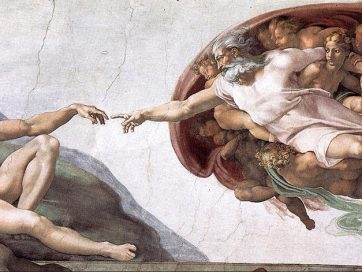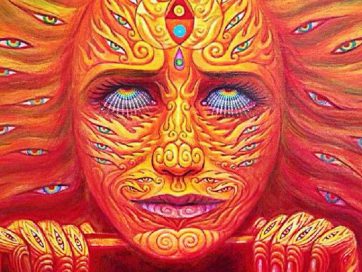
While experiencing a period when generations called Baby Boomers, Generation X, Generation Y and Generation Z converge and coexist with each other, I get the sense that life today is full of internal strife due to the antagonism of trends systems, in which the will of a generation could remain in the same direction of the others if it didn’t care about their differences. In my opinion, what matters in this context is not the so-‐called “clash of generations”, but a “conflict of habits” instead.
Habits have a considerable influence on civilization, allowing individuals to keep their achievements and giving them the freedom to reach further progress. They avoid unnecessary moves and allow men to act more effectively. They stabilize the mind, systematize it, ie without habits the society would not be conceivable. However, there is the other side. If habits define human nature, they also undo it. They build as they destroy. They are life needs, but also create large problems at the same time.
All generations can be identified by the characteristic manners of their actions towards certain factors of their times (politics, family relations, sexuality, etc.). I will not give specific details of each generation (this work has been done many times), but I would like to speculate on the repercussion of these habits in the labor market.
Born after World War II, from 1945 to 1964, the Baby Boomers were the children of hope for a world that had hugely suffered from economic crises (such as the 1929 NY stock market crash) and the Second World War. Back in their time, they found the appreciation of their work in a single company, usually ran by clear rules, defined schedules and professional growth, due more because of the working time devoted to the company than the experiences outside this context. In the current reality, individuals of this generation are considered inflexible and resistant to the continuous and frequent changes of our time.
Generation X came next and experienced uncertain times because of the Cold War, dictatorships, energetic economic crises and the rise of new diseases such as Aids. As consumers of the first computers and video games, this generation, born between 1960 and 1980, is defined by its dynamism and competitiveness and its ability to reinvent itself and prepare itself better for the labor market. Postgraduate courses, MBAs and Ph.Ds are part of this process.
Slacker, spoiled, distracted and rebellious are just some of the adjectives for Generation Y. Many in this generation want to achieve financial and professional advancement until their 30’s. Born at a time of many ruptures (fall of the Berlin Wall, fall of regimes, dictatorships and many pre-‐established concepts) they are children of divorce, but also children of the digital age, the internet, the environmental concerns and the will to do and own what they want, the way they want. The interesting thing to observe in population Y is the embodiment of what was once just a concept for the repressed previous generations. With sometimes confusing, yet well-‐defined ideals of freedom, they seek work in areas that they enjoy and they manage a career plan compatible with what most pleases them. If they do not feel recognized at work they simply leave and go after better opportunities. Companies like Microso, Apple, Facebook defend this concept and give these young people a professional environment in which they can express their creativity and talent.
The Generation Z began in 1998, and it can be defined as the version 2.0 of Generation Y, having born already “connected”. Their representatives do not need “manuals” to learn, they are the generation of “practice”. A striking feature of this large group is the need to stay always in touch with each other, not necessarily in a physical way, but through current social networks or any other communication tool that may come up in the world. They are part of the era of multitasking individuals who feel more motivated to study and work on behalf of technology, in a sharing and collaborative environment.
All these generations are marked by a variety of habits. A habit is like a known path and therefore more comfortable to be followed. The truth however comes from a real contradiction: we want progress without “letting go” of changing ourselves. We may discuss a new idea or a new kind of behavior recommended by someone, but particularly we resist, without adopting it. We often lose ourselves in face of so many changes and, when pride allows, we ask for help; however, when introduced to a new possible path, we do not follow it. We back away and claim that the new concept does not work; we ask a new alienating medication without realizing the joy of the “old fashion”, speaking softly in order to stand firm on the former direction, even when this road leads to failure.
The main reason why a different habit is not pursued is the habit itself. The biggest reason why a person does not improve is not having improved on the previous day. One does not accomplish anything today as he has not done it the day before. The difficulty of new learning for older generation workers is not due to a disability caused by age, yet by old habits that stand, preventing the adult mind to accept what is new and adapt. The paradigm of “old age” puts so much time and energy on a few habits that people do not find enough strength to transform themselves. It is such a strong pressure that gradually it undermines the individual, since it creates an unpleasant critical spirit towards younger generations, eliminating any inclination to accept the world as it really is and to stay tuned with the his time. They are like certain wild disgusting vines that curl up in new plants preventing them from growing.
In limited cases, rather than colliding, generations meet each other. In my family, I have the privilege of experiencing this syntony. My father is a Baby Boomer, my brother and I were raised in Generation Y. We are certainly different. My father is the precursor of all the dreams we have, while we are the heirs of the dreams he planted. He is a man with vision and entrepreneurship that are different from mine, but now we all reap together, in a way that are way more creative and connected with the world around us, the fruit of our experiences. We have all grown, learnt, made mistakes, but in our constant quest nothing has got lost, everything has been renewed. In this journey I’ve learned to plant my own dreams.
“Old age is a matter of habits, not years.” At home, I’ve learned this lesson. The different is not bad or inferior. One has to understand it. Being different is just a matter of point of view and it should not be overlooked, for it can imply the raw material for major changes and new transformations.
Ironically, I write this with the radio on and the song that plays is “Fathers and Sons” by Renato Russo. The lyrics of this song translates poetically much of what has been said here: “what will you be when you grow up?”. With so many possibilities of choice it is not difficult to get lost. The world is changing at breakneck speed. New habits become old in a matter of days. We need to evolve, adapt ourselves. It is not a simple task, but answering daily this genial question (in the context in which it was written) led by the composer may help us find a way.







